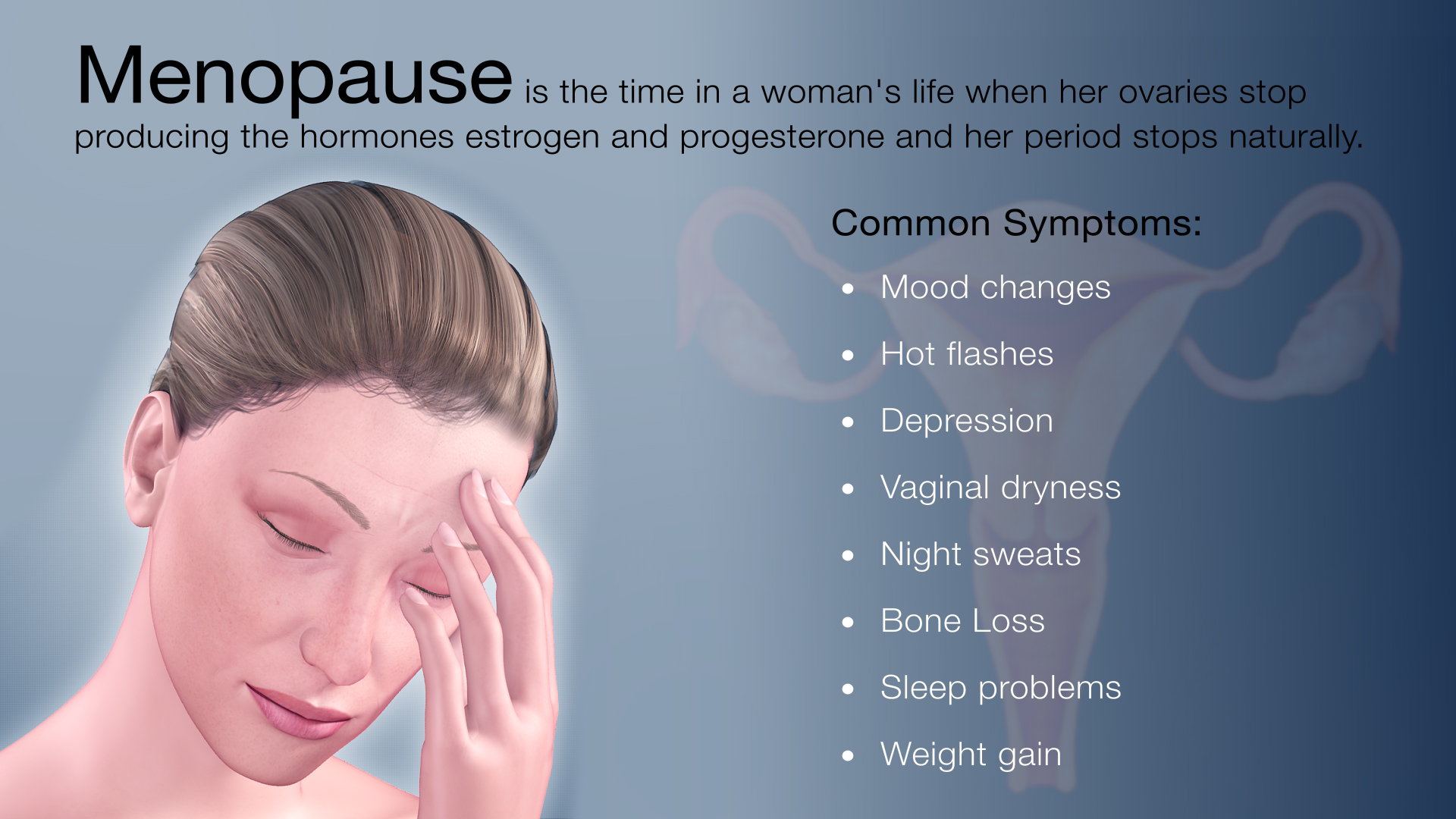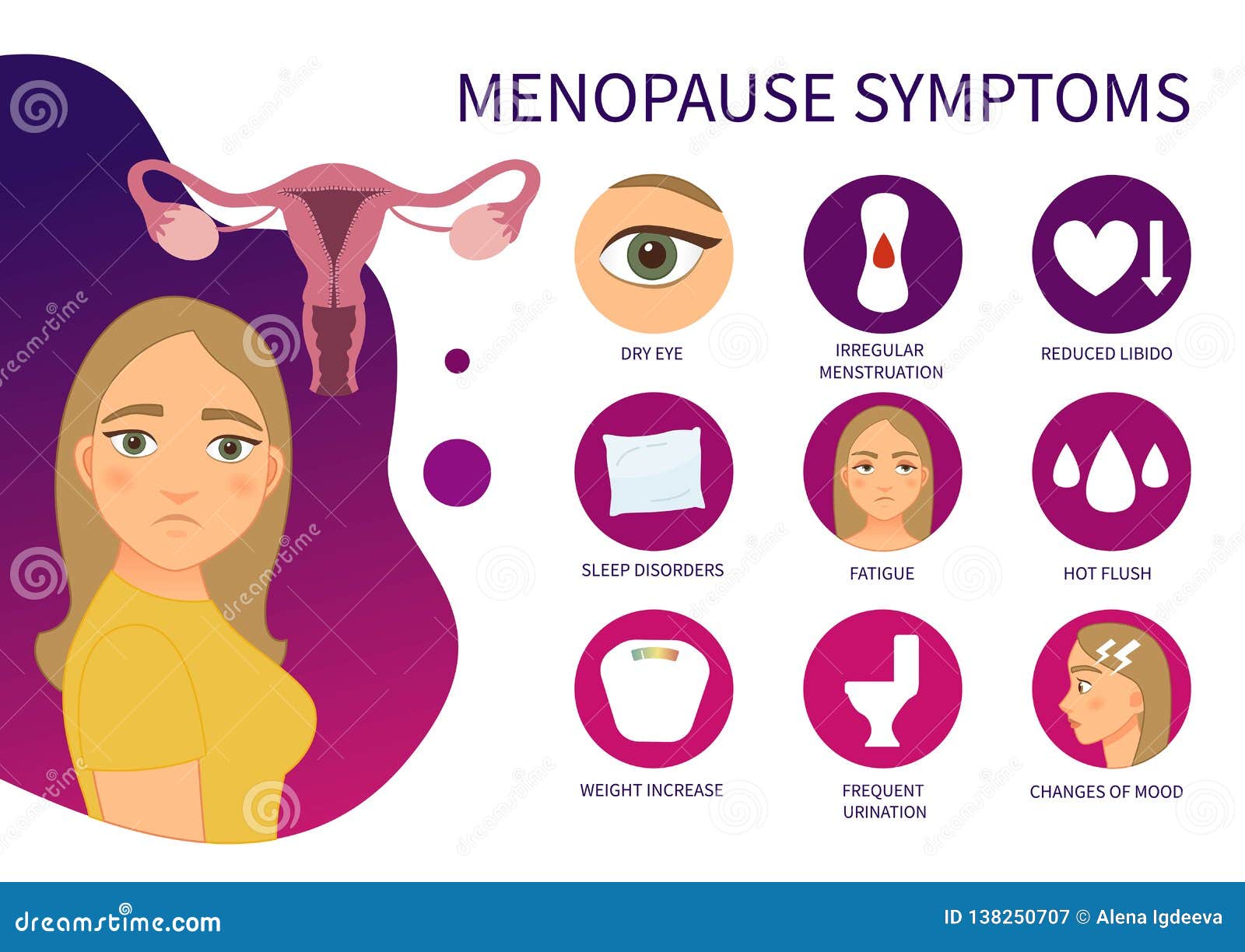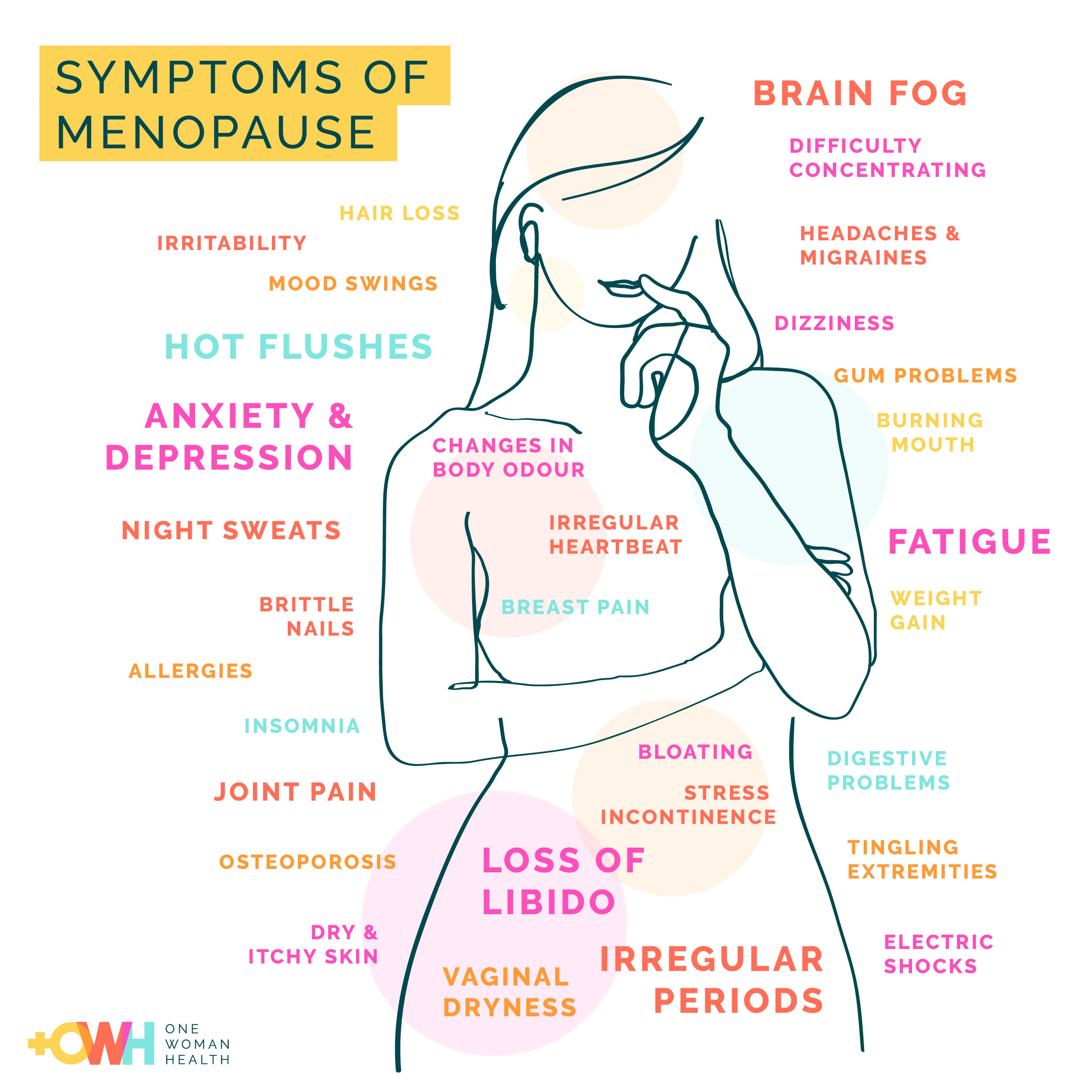Signs and symptoms of menopause – As women transition through menopause, a profound metamorphosis unfolds, marked by a symphony of physical, emotional, and cognitive changes. This guide delves into the intricacies of these signs and symptoms, empowering individuals to navigate this transformative journey with knowledge and understanding.
From the telltale hot flashes to the subtler shifts in mood and memory, this comprehensive resource unravels the complexities of menopause, offering invaluable insights and practical strategies for managing its multifaceted manifestations.
Physical Symptoms
Menopause, a natural transition in a woman’s life, brings about a range of physical changes. These symptoms can vary in intensity and duration from person to person. Understanding these symptoms can help women navigate this phase with greater ease and support.
- Hot Flashes and Night Sweats:Sudden sensations of intense heat that spread over the face, neck, and chest, often accompanied by sweating. These episodes can be triggered by various factors, including hormonal fluctuations and changes in the body’s temperature regulation.
- Sleep Disturbances:Difficulty falling or staying asleep, frequent awakenings, and reduced sleep quality. Hormonal changes can disrupt the body’s natural sleep-wake cycle, leading to insomnia or excessive daytime sleepiness.
- Vaginal Changes:Thinning and drying of the vaginal walls due to reduced estrogen levels. This can result in discomfort during intercourse, vaginal dryness, and increased susceptibility to infections.
- Urinary Incontinence:Involuntary leakage of urine, particularly during activities that put pressure on the bladder, such as coughing, laughing, or exercising. Weakening of the pelvic floor muscles and changes in hormone levels can contribute to this condition.
- Osteoporosis:A condition characterized by decreased bone density, making bones more fragile and susceptible to fractures. Reduced estrogen levels during menopause can accelerate bone loss, particularly in the spine, hips, and wrists.
- Weight Gain:Redistribution of body fat, with an increase around the abdomen and a decrease in muscle mass. Hormonal changes and decreased physical activity can contribute to weight gain during menopause.
- Skin Changes:Dryness, thinning, and loss of elasticity due to reduced collagen production. The skin may become more prone to wrinkles and age spots.
- Mood Swings and Irritability:Fluctuations in hormone levels can affect mood, leading to irritability, anxiety, or depression.
- Hair Loss and Thinning:Reduced estrogen levels can impact hair growth, leading to thinning or hair loss, particularly on the scalp.
These physical symptoms can significantly impact a woman’s quality of life. Recognizing and addressing these changes is essential for managing menopause effectively. Medical professionals can provide guidance and support in alleviating symptoms and promoting overall well-being during this transition.
Emotional Symptoms
Menopause is not just about physical changes; it also brings about a range of emotional symptoms. These can be attributed to the hormonal fluctuations that occur during this time, affecting mood and behavior.
Some common emotional symptoms of menopause include:
- Mood swings:Rapid shifts in mood, from feeling happy and energetic to irritable and sad.
- Anxiety:Increased feelings of worry, nervousness, and unease, often accompanied by physical symptoms like racing heart and shortness of breath.
- Depression:Persistent feelings of sadness, hopelessness, and loss of interest in activities that were once enjoyable.
- Irritability:Feeling easily annoyed, frustrated, or impatient, with a decreased tolerance for stressors.
- Insomnia:Difficulty falling or staying asleep, leading to fatigue and daytime drowsiness.
These emotional symptoms can significantly impact a woman’s quality of life, affecting her relationships, work, and overall well-being. Understanding the hormonal changes and their effects on mood can help women cope with these challenges during menopause.
Cognitive Symptoms
Menopause can bring about cognitive changes that affect memory, attention, and concentration. These changes are attributed to the decline in estrogen levels, which influences the brain’s neurochemistry.
Memory may become less sharp, and difficulty recalling names, dates, or events can occur. Attention span may shorten, making it harder to focus on tasks for extended periods. Concentration may also be impaired, leading to distractions and difficulty in following conversations or instructions.
Strategies for Managing Cognitive Symptoms
- Engage in regular mental activities such as reading, puzzles, or learning new skills to keep the mind active.
- Practice mindfulness techniques to improve focus and concentration.
- Exercise regularly, as physical activity promotes blood flow to the brain and supports cognitive function.
- Get adequate sleep to ensure the brain has time to rest and consolidate memories.
- Consider hormone replacement therapy (HRT) if recommended by a healthcare professional, as it may help alleviate cognitive symptoms in some women.
Long-Term Health Risks

Menopause can bring about a range of long-term health risks due to the hormonal changes that occur during this transition. Understanding these risks and taking appropriate steps to manage them is crucial for maintaining overall well-being.
Osteoporosis
The decline in estrogen levels during menopause can lead to a loss of bone density, increasing the risk of osteoporosis. This condition weakens bones, making them more susceptible to fractures. Regular exercise, a balanced diet rich in calcium and vitamin D, and hormone replacement therapy can help maintain bone health and reduce the risk of osteoporosis.
Heart Disease, Signs and symptoms of menopause
Estrogen has protective effects on the cardiovascular system. As estrogen levels decline, the risk of heart disease increases. Maintaining a healthy lifestyle, including a heart-healthy diet, regular exercise, and managing blood pressure and cholesterol levels, is essential for reducing the risk of heart disease.
Alzheimer’s Disease
Some studies suggest that the hormonal changes associated with menopause may increase the risk of developing Alzheimer’s disease later in life. While the exact link is not fully understood, it is believed that estrogen may play a role in protecting brain health.
Engaging in mentally stimulating activities, maintaining social connections, and managing stress can help support cognitive function and reduce the risk of Alzheimer’s disease.
Treatment Options: Signs And Symptoms Of Menopause

Managing menopause symptoms can involve various treatment options, each with its own benefits and risks. Lifestyle modifications and medical interventions can provide relief and improve overall well-being during this transitional period.
Hormone Therapy
Hormone therapy, also known as hormone replacement therapy (HRT), is a common treatment option that involves taking hormones, such as estrogen and progesterone, to replace the declining levels produced by the ovaries during menopause. HRT can effectively alleviate hot flashes, night sweats, and other vasomotor symptoms.
It can also help prevent bone loss and reduce the risk of osteoporosis. However, HRT may increase the risk of certain health conditions, such as breast cancer, blood clots, and stroke, so it’s crucial to discuss the potential risks and benefits with a healthcare professional before starting treatment.
Non-Hormonal Medications
Non-hormonal medications, such as antidepressants and anticonvulsants, may be prescribed to manage specific symptoms of menopause. Antidepressants can help alleviate mood swings, irritability, and anxiety, while anticonvulsants may reduce hot flashes. These medications may have side effects, so it’s essential to discuss the potential benefits and risks with a healthcare provider.
Lifestyle Modifications
Adopting healthy lifestyle modifications can also help alleviate menopause symptoms. Maintaining a healthy weight, engaging in regular physical activity, and following a balanced diet rich in fruits, vegetables, and whole grains can improve overall health and well-being. Additionally, managing stress through relaxation techniques, such as yoga or meditation, can help reduce the severity of hot flashes and other symptoms.
Alternative Therapies
Some women may consider alternative therapies, such as acupuncture, herbal remedies, or dietary supplements, to manage menopause symptoms. While some studies have shown potential benefits, more research is needed to determine the effectiveness and safety of these therapies. It’s essential to consult with a healthcare professional before using any alternative therapies to ensure they do not interact with other medications or have any adverse effects.
Cultural and Social Impact

Menopause is a significant life event that can have profound cultural and social implications. The way menopause is perceived and experienced varies greatly across different cultures, influenced by societal norms, values, and beliefs.
Stigma and Misconceptions
In some cultures, menopause is associated with negative stereotypes and misconceptions. It is often seen as a time of decline, weakness, or loss of femininity. These stigmas can lead to feelings of shame, embarrassment, and isolation for women experiencing menopause.
Resources for Support
Navigating menopause can be a solitary journey, but it doesn’t have to be. Seeking support and connecting with others who are going through similar experiences can provide invaluable comfort, validation, and guidance.
Support Groups
Support groups offer a safe and confidential space for women to share their experiences, learn from others, and find emotional support. These groups are often led by trained facilitators and provide a structured environment for discussing challenges, coping mechanisms, and practical advice.
Online Forums
Online forums provide a virtual community where women can connect with others who are experiencing menopause. These platforms allow for asynchronous communication, enabling women to participate at their own convenience and from the comfort of their own homes.
Professional Organizations
Professional organizations such as the North American Menopause Society (NAMS) and the International Menopause Society (IMS) offer a range of resources, including educational materials, support groups, and access to healthcare professionals who specialize in menopause.
Closure

Menopause, a natural stage in a woman’s life, presents a unique set of challenges and opportunities. By embracing a holistic approach that encompasses physical, emotional, and cognitive well-being, individuals can navigate this transition with grace and resilience. This guide serves as a beacon of knowledge, empowering women to make informed decisions, access support, and emerge from menopause as vibrant and empowered individuals.
FAQ Summary
What are the most common physical symptoms of menopause?
Hot flashes, night sweats, vaginal dryness, sleep disturbances, and urinary incontinence are among the most prevalent physical symptoms.
How do emotional symptoms manifest during menopause?
Mood swings, irritability, anxiety, and depression are common emotional experiences associated with hormonal fluctuations.
What cognitive changes may occur during menopause?
Memory lapses, difficulty concentrating, and reduced attention span are potential cognitive effects of menopause.
Are there any long-term health risks associated with menopause?
Menopause can increase the risk of osteoporosis, heart disease, and Alzheimer’s disease due to hormonal changes.